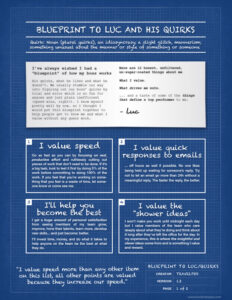Bad boss relationships run rampant, wreaking stress, demoralization, and dysfunction.
When psychologist Daniel Kahneman measured happiness levels through the course of the day, he found that among all daily events and interactions, the one thing that made people the most unhappy was spending time with their boss. It doesn’t just end there. According to psychologist Robert Hogan, 75% of people say the worst, most stressful part of their job, is “their immediate boss.”
This post isn’t for all you bosses out there. This is for all you sufferers of bad bosses everywhere. You aren’t doomed to unhappiness and feeling frustrated, anxious, and put down, as long as you’re ready to step up to the plate.
The Hopelessness of Holding Out To Quit
While bad boss horror stories fuel happy hours across the land, it seems rarer to hear people talk about how they’re working on improving this particular relationship. Instead, the typical bad boss plotline usually involves a sort of wearying, fraught holding pattern— weeks that turn to months that may extend into years — before the unhappy employee finally quits.
While I’m sure there’s many a valiant attempt before the breaking point, dealing with a bad boss more often comes across as something you cope with rather than manage. I’ve always found this holding pattern strange because the approach is such a departure from the care and drive with which people approach their career when it comes to job-hunting, going to school, networking — everything that comes before getting hired.
What holds people back is a sense of futility, that nothing will change anyway. Then your mission, should you choose to accept it, is grin and bear it as long as you can before you quit and find greener pastures. As Claire Lew explains at Signal v. Noise, “Futility has been found to be 1.8 times more common than fear as a reason for employees not speaking up to their managers… [I]t’s not that we’re merely scared of giving feedback. It’s that we don’t think anything will come of the feedback when we voice it.”
Take Charge of Your Bad Boss Relationship
The main problem with futility is that it turns into an ongoing excuse. When your attitude becomes one of “well, there’s no point” — even if it’s a rational response trained by history — it’s also a refusal of responsibility.
An enlightening way to shift your mentality about the bad boss problem is to take a step back to reconsider your health and happiness. Popforms cofounder Kate Stull provides a compelling instruction: “If your day-to-day happiness is important to you, then it’s worth your time to take charge of your relationship with your boss.”
In other words, forget your futile attitude about your crappy relationship with your manager. Are you okay with having a futile attitude towards your own wellbeing and career?
Taking charge involves gaining a deep understanding of your boss’s strengths and weaknesses, priorities, and work style and getting proactive about helping them help you. Here are three ideas to get started:
1. Draw up a boss blueprint. 
Ask for your manager to create a boss blueprint, a simple document recording particular values, dislikes, and quirks. TripAdvisor’s Luc Levesque provides one to new employees, for example, to promote their success while skipping much of time-wasting trial-and-error of learning how to work with someone. You can explain how this would be helpful for new employees or team collaboration as a whole or attribute the request to your desire to get better at your job.
If you don’t want to come right out and ask your boss to do this, you can make one yourself — filling in information based on what you see satisfies or frustrates your boss, and what satisfies and frustrates you in your interactions with him or her.
2. Communicate proactively to ease their sense of control.
Often people fall into a trap of micromanaging because it’s their job to have a handle on everything that’s going on — and the easiest way to keep track of all this information is to insert themselves into every step of every project. Try communicating proactively about project status, next steps, and problems you’re running into to see if that will make them loosen their grip while giving you more autonomy over your work.
3. Find out what they hate doing and handle it for them.
This takes stressful, overwhelming tasks off your boss’s plate while providing you a chance to step up your game to do or master something new. Kate, for example, realized her boss had been frustrated by the top leadership’s habit of implementing a new policy and then running away. So Kate took charge:
I got into meetings with them. I asked direct questions about what this new policy would mean for us, and what specifically we could do to make it a success. I held them to their promises by following up on dates and deadlines.
I turned the thing my manager hated to do into the thing I could do to make us both happier.
* * * * *
There are often small but significant aspects of your workday that you can influence to improve your overall happiness level. At best, taking charge over your relationship with your boss can open new doors and possibilities for your career. Facing your feelings of futility or timidity when it comes to a bad boss relationship can be an opportunity rather than a risk.

